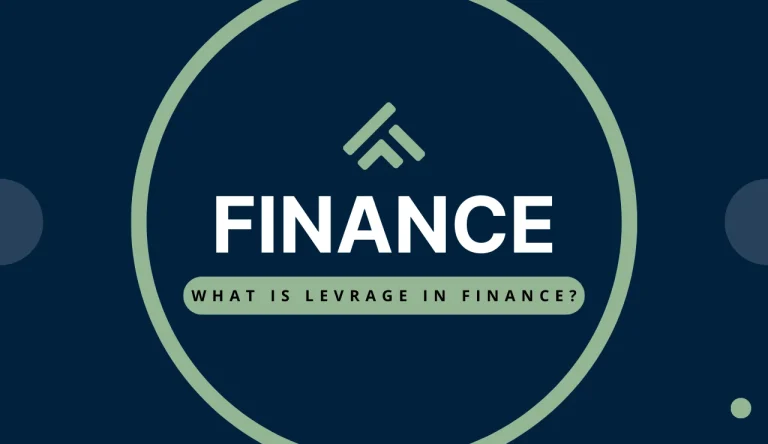What Is Principal In Finance
Maybe you think What Is Principal In Finance? In simple terms, principal refers to the initial money invested or borrowed. It is a fundamental concept crucial in various financial transactions and decisions. Whether you’re taking out a loan, investing in stocks, making mortgage payments, saving for retirement, or financing your business, understanding the principal concept is essential.
Regarding loans and borrowing, the principal represents the amount borrowed that needs to be repaid over time. In investments, the principal is the initial capital that generates returns and determines your potential profits or losses. Additionally, when paying off your mortgage, a portion of each payment goes towards reducing the principal balance. Furthermore, managing your retirement savings involves considering how much principal you have accumulated over time.
And if you’re an aspiring entrepreneur seeking business financing options, lenders will evaluate your ability to repay interest and principal. By grasping the importance of principle in these various financial scenarios and learning effective ways to manage it wisely, you can make informed decisions that align with your long-term goals. So let’s delve into how principal impacts different aspects of finance and explore strategies for effectively managing it.
Key Takeaways
- Principal refers to the initial amount invested or borrowed in finance, which is essential in loans, investments, mortgage payments, retirement savings, and business financing.
- Maximizing principal growth requires diversifying investments, making regular contributions, and minimizing fees.
- Understanding payment allocation between principal and interest is crucial in loan repayment, and interest rates significantly affect the loan amount owed.
- Principal preservation and protection are important in investment decisions, and actively managing principal investments mitigates risks and optimizes growth.
Definition and Importance of Principal in Finance
The principal, or the initial amount of money invested or borrowed, is a foundational financial concept that is the starting point for all financial transactions. Understanding the role of principals in financial planning is crucial for individuals and businesses alike.
It forms the basis for calculating interest, determining investment returns, and evaluating loan repayment schedules. Maximizing principal growth requires careful consideration of various strategies. One approach is diversifying investments across different asset classes to spread risk and potentially increase returns.
Additionally, regularly contributing to an investment portfolio can help boost principal over time through compound interest. Another strategy involves minimizing fees and expenses associated with financial products and services, allowing more of the principal to be allocated towards growth opportunities. By prioritizing these strategies, individuals can work towards maximizing their principal and achieving their long-term financial goals.
Principal in Loans and Borrowing
When it comes to loans and borrowing, it’s crucial for you to understand loan repayment. You need to know how much you’ll be paying back each month and for how long to budget effectively. Additionally, the impact of interest rates on the principal amount borrowed is significant. It can drastically affect the total amount you end up repaying over time. By being knowledgeable about these factors, you can make informed decisions about taking out loans and managing your finances.
Understanding Loan Repayment
Imagine sitting at your kitchen table, looking at a stack of bills. As you start to make payments, remember that each dollar you put towards the principal is like planting a seed in your financial garden – it may take time and effort, but eventually, those seeds will grow into a flourishing money tree.

When it comes to loan repayment, understanding how your payments are allocated between principal and interest is crucial. This knowledge becomes even more important when considering options like loan refinancing or student loan repayment. By focusing on paying down the principal balance of your loans, you can save money on interest over time and potentially shorten the overall repayment period.
It’s like giving yourself a head start towards financial freedom. So next time you make a payment, remember that every dollar towards the principal gets you closer to achieving your financial goals.
Impact of Interest Rates on Principal
Get ready to discover how interest rates can significantly affect the amount you owe on your loan. When repaying a loan, the interest rate is crucial in determining how much of your monthly payment goes towards paying off the principal. Here are three critical ways in which interest rates impact the principal:
Impact of inflation on principal: Inflation refers to the general price increase over time. When inflation is high, it erodes the purchasing power of money. As a result, if you’ve borrowed money at a fixed interest rate, the actual value of your debt decreases over time.
Impact of economic conditions on principal: Interest rates are influenced by economic conditions such as growth, inflation, and monetary policy set by central banks. During economic downturns or recessions, central banks often lower interest rates to stimulate borrowing and spending. This can result in lower monthly payments and faster repayment of the principal.
Impact of changing interest rates on monthly payments: If you have a variable-rate loan, changes in interest rates directly impact your monthly payment amount and how much goes towards reducing the principal balance.
Understanding these impacts is essential for making informed decisions about loans and managing your finances effectively.
Principal in Investments
Investments can be a great way for you to grow your wealth, and understanding the concept of principal is crucial in making informed decisions. When it comes to investments, principal refers to the initial amount of money you invest. It is important to consider principal preservation and protection when choosing investment options.
Principal preservation focuses on minimizing the risk of losing your initial investment by choosing low-risk options such as bonds or certificates of deposit. On the other hand, principal protection involves strategies that aim to protect your investment from market volatility and potential losses through diversification or hedging techniques.
By focusing on both principal preservation and protection, you can minimize the risk of losing your hard-earned money while still seeking opportunities for growth in your investments.
Principal in Mortgage Payments
When it comes to mortgage payments, understanding the concept of principal is crucial. One key point to consider is how amortization and principal reduction work together. By making regular payments, you not only pay off interest but also steadily reduce the amount owed on the loan. This leads to equity building through principal payments, as your ownership in the property increases over time.
Amortization and Principal Reduction
Although it may feel like a never-ending battle, diligently making regular payments toward your loan will gradually chip away at the principal amount owed. This is due to the process of amortization and principal reduction. Amortization refers to the gradual repayment of a loan over time through regular installments, which consist of both interest and principal portions. The amortization calculation determines how much of each payment goes towards reducing the principal balance.
As you make these payments, it’s crucial to monitor your principal balance closely. By doing so, you can keep track of how much is left on your loan and see the progress you are making in reducing the overall debt. It’s important to stay committed to this process as it ultimately leads to full repayment of your loan and financial freedom.
Equity Building through Principal Payments
As you steadily chip away at your loan balance through regular payments, you’re not just reducing debt, but also building a stronger foundation for your financial future. By making principal payments, you are actively working towards equity preservation and principal growth. Equity is the value of an asset that you own outright, free from any debts or liabilities. It represents your ownership stake in a property or investment.
As you pay down the principal on your loan, your equity in the property increases. This means that with each payment you make, you are building up more ownership in the asset and reducing the amount owed to the lender. Over time, this can lead to significant equity growth and provide a solid financial base for future opportunities or emergencies.
| Equity Preservation | Principal Growth |
|---|---|
| Protects against market fluctuations | Increases ownership stake |
| Provides stability and security | Builds long-term wealth |
| Offers potential borrowing power | Creates a strong financial foundation |
By focusing on paying down the principal balance, you are not only reducing debt but also building equity and strengthening your overall financial position. This can be a smart strategy for achieving long-term goals such as homeownership or growing your investment portfolio. Remember that every payment counts towards both debt reduction and building a brighter financial future.
Principal in Retirement Savings
One interesting statistic about principal in retirement savings is that, according to a survey, 42% of Americans have less than $10,000 saved for their retirement. This highlights the importance of retirement planning and utilizing retirement accounts to build up your principal.
It’s crucial to start saving early and contribute regularly to maximize your savings potential. By focusing on growing your principal in retirement accounts, you can benefit from compounding interest over time. This means that not only does your initial investment grow, but the interest earned on that investment also grows. By taking advantage of tax-advantaged retirement accounts like 401(k)s or IRAs, you can further boost your principal through employer contributions or tax deductions.
Building a solid nest egg for retirement provides financial security and peace of mind for the future. It allows you to maintain your lifestyle and cover expenses when you no longer have a regular income. So take control of your retirement savings now and prioritize building up your principal for a comfortable and worry-free retirement.
Scenario 1:
- Imagine traveling the world during your golden years without worrying about money.
- Picture yourself enjoying leisurely activities with loved ones knowing that you have enough funds saved up.
Scenario 2:
- Now think about the stress and anxiety of not having enough money saved for retirement.
- Consider the limitations this might impose on your lifestyle choices as you age.
Principal in Business Financing
When it comes to business financing, there are several key points to consider. First, you need startup capital and principal investment to get your business off the ground. This involves putting in your own money or seeking funding from investors. Second, debt financing is another option where you borrow money from lenders and repay the principal amount over time. Lastly, principal repayment refers to the process of paying back the initial loan amount along with any interest accrued.
Properly understanding these concepts is crucial for effectively managing your business finances.
Startup Capital and Principal Investment
To secure the necessary funds for a startup, entrepreneurs often rely on principal investment from venture capitalists or angel investors. Startup funding is crucial for entrepreneurs to turn their innovative ideas into successful businesses. Here are four key points to understand about startup capital and principal investment:
- Venture capital: This type of funding is provided by professional investors who seek high returns in exchange for taking on significant risks. Venture capitalists typically invest in startups with high growth potential.
- Principal investment: It refers to the initial amount of money invested by an investor into a business. This investment plays a fundamental role in providing the necessary capital to get a startup off the ground.
- Equity ownership: In return for their principal investment, venture capitalists or angel investors usually receive equity in the company. This allows them to have a stake in the potential success and future profits of the business.
- Funding rounds: Startups often raise multiple rounds of funding as they grow and reach different milestones. Each round involves attracting new investors who contribute additional principal investments to fuel further growth.
Understanding how startup capital and principal investments work is essential for entrepreneurs seeking financial support to bring their ideas to life.
Debt Financing and Principal Repayment
Don’t worry, you don’t have to sell your soul to the devil to repay the principal amount borrowed through debt financing. Debt financing is a common method used by businesses to raise capital, where they borrow money from lenders and agree to repay it over time with interest.
When it comes to repaying the debt, one of the key components is the principal balance. The principal balance refers to the original amount borrowed, excluding any interest or fees. As a business owner, managing your debt effectively involves understanding and keeping track of your principal balance. By making regular payments towards this balance, you can gradually reduce your debt over time.
It’s important to develop a strategic plan for debt management and allocate funds towards both interest payments and reducing the principal balance. This will help you stay on top of your finances while working towards becoming debt-free.
Considerations for Managing Principal
Ensure that you carefully monitor and protect your principal investment to maximize financial growth. Managing your principal requires a thorough understanding of risk and implementing effective diversification strategies. Consider the following key points:

- Regularly assess the performance of your investments to identify any potential risks or areas for improvement.
- Diversify your portfolio by spreading your investments across different asset classes, industries, and geographic regions.
- Stay informed about market trends and economic indicators to make well-informed decisions regarding your principal.
- Continuously evaluate the risk-return tradeoff of each investment opportunity to ensure it aligns with your financial goals.
By actively managing your principal, you can mitigate risks, seize opportunities, and optimize the growth potential of your investments. Remember to regularly review and adjust your strategy as needed to adapt to changing market conditions.
Frequently Asked Questions
Concluding “What Is Principal In Finance”
Understanding the concept of principal in finance is crucial for managing your financial decisions effectively. Whether it’s loans, investments, mortgage payments, retirement savings, or business financing, the principal amount plays a significant role in determining the overall outcome.
One interesting statistic to consider is that according to a survey conducted by Gallup in 2020, only about 55% of Americans have money invested in stocks or mutual funds. This highlights the importance of educating oneself about principal and its implications to make informed financial choices and secure a stable financial future.






